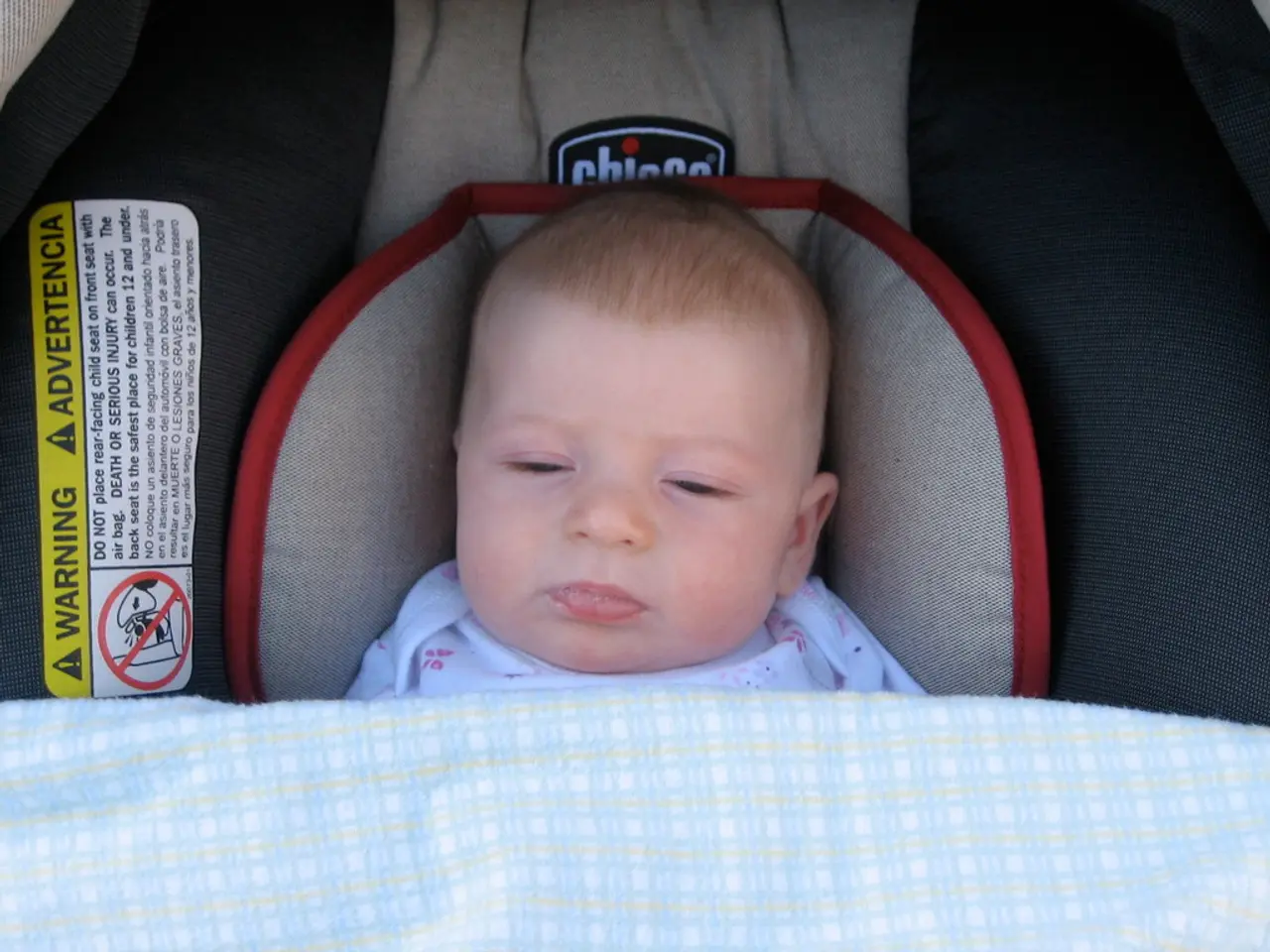Daycare Practices: Potential Use of Melatonin for Children's Naps and Associated Health Concerns
Headline: Parents Urged to Avoid Melatonin Gummies for Children and Question Daycare Practices
In recent news, a personal shopper has reported an alarming trend of daycares ordering large quantities of melatonin gummies, raising concerns about the safety and appropriateness of relying on a sleep aid to manage children's sleep issues.
Melatonin gummies, popular as a sleep aid for children, contain melatonin, a hormone that helps regulate sleep-wake cycles. However, the use of these gummies in daycare settings can pose potential risks, particularly when used in large quantities.
The UK Medicines and Healthcare products Regulatory Agency (MHRA) has advised parents and caregivers to cease use of certain magnesium gummies found to contain undeclared prescription-only melatonin. The agency emphasises that melatonin use in children is only recommended under strict medical supervision.
Parents should not rely on over-the-counter melatonin gummies for children and should check all supplements at home and in caregiving settings. Sleep aids containing melatonin should only be used under pediatrician supervision due to potential side effects like drowsiness, headache, dizziness, hyperactivity, and abdominal pain.
If a child shows side effects possibly related to sleep aids, parents should consult healthcare professionals promptly and report adverse effects to regulatory bodies like the MHRA Yellow Card scheme.
Daycare providers generally should avoid administering sleep aids like melatonin gummies and follow parents' instructions and regulatory guidance strictly. Parents should have open and honest conversations with their daycare providers about their policies on melatonin gummies.
Relying on melatonin gummies without addressing underlying sleep issues may not be in the best interest of children. Alternative methods to help children sleep include establishing a consistent bedtime routine and creating a sleep-friendly environment.
The shopper's warning to parents of young children in daycare comes as the amounts ordered are described as "obscene." Parents can provide information about their child's sleep habits, preferences, and known sleep issues to help daycare providers tailor their approach to meet the child's individual needs.
Daycare centers have a responsibility to ensure the safety and well-being of the children in their care, including promoting healthy sleep habits. The recommended dosage of melatonin for children varies depending on their age and individual needs.
Regularly checking in on a child's sleep experiences in daycare and addressing any concerns promptly can help ensure their sleep is safe and healthy. The long-term effects of melatonin use in children are not fully understood due to limited research. It is important to consult with a healthcare professional before giving melatonin to children.
Parents should inquire about the reasons for using melatonin gummies, the dosage being given, and any potential side effects or risks associated with their use. By being proactive in advocating for their child's well-being, parents can help ensure their child's sleep is managed appropriately.
a) Establishing healthy sleep habits, such as a consistent routine and a sleep-friendly environment, could be more beneficial for children's sleep compared to relying on melatonin gummies, which affect mental health and general health-and-wellness due to their potential side effects.
b) In conjunction with promoting healthy sleep habits, daycare centers should avoid the use of sleep aids like melatonin gummies, especially in light of various scientific studies that highlight their potential risks when used without medical supervision.




